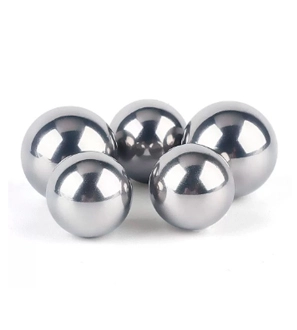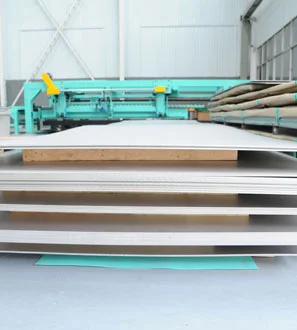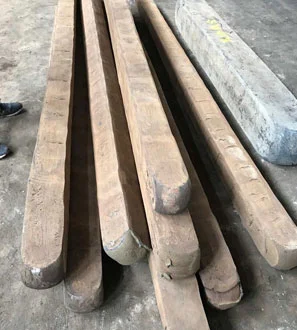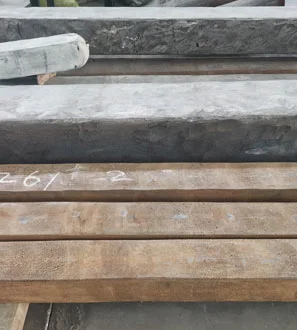Thank you for your
attention on Yesheng !
Titanium Connecting Rods vs Titanium Billet
In the intricate world of engine construction, the choice between titanium connecting rods and machined steel connecting rods plays a pivotal role in determining performance, durability, and overall efficiency. As a leading Titanium Manufacturing Company, we delve into a detailed comparison to help you make informed decisions based on weight, cost, durability, and application scenarios of titanium connecting rods and titanium billet for sale.
Titanium Connecting Rods vs Titanium Billet-Weight and Lightweight Construction
One of the defining characteristics of titanium connecting rods is their lightweight nature, approximately 20% lighter than machined steel connecting rods. This significant reduction in weight makes titanium connecting rods particularly suitable for applications where weight is a critical factor, such as high-speed racing engines. The lightweight design enhances the overall responsiveness of the engine, contributing to improved performance on the track.
Titanium Connecting Rods vs Titanium Billet-Price and Cost Considerations
While titanium connecting rods offer unparalleled benefits in terms of weight reduction and performance, they come with a notable price tag. On average, titanium connecting rods are priced around four times higher than their machined steel counterparts. The substantial cost difference prompts manufacturers and builders to carefully assess their budget constraints and performance priorities before making a choice between the two materials.
Titanium Connecting Rods vs Titanium Billet-Durability and Fatigue Life
Durability is a key factor in assessing the suitability of connecting rods for different applications. Titanium connecting rods, particularly in racing scenarios, exhibit a finite fatigue life, typically requiring replacement every 40-80 hours of operation. The need for frequent replacement is attributed to the intense and demanding conditions faced by racing engines. On the other hand, machined steel connecting rods, when manufactured correctly, have a reputation for high durability, offering a longer lifespan between replacements.
Titanium Connecting Rods vs Titanium Billet-Application Scenarios
The choice between titanium connecting rods and machined steel connecting rods often hinges on the specific requirements of the application. Titanium connecting rods shine in racing environments where their lightweight design and responsiveness to high speeds provide a competitive edge. The reduced mass allows the engine to rev more freely, contributing to enhanced acceleration and overall performance on the racetrack.
Machined steel connecting rods, while not as lightweight as their titanium counterparts, present a more economical and durable choice in certain scenarios. Industries and applications where longevity and cost-effectiveness are prioritized may find machined steel connecting rods to be a more practical solution. Their high durability, when manufactured correctly, makes custom titanium products suitable for a range of applications beyond racing, including everyday automotive use and industrial machinery.
Titanium Connecting Rods vs Titanium Billet-Overall Considerations
The decision to opt for titanium connecting rods or machined steel connecting rods ultimately depends on a combination of application requirements, budget constraints, and desired performance outcomes. Racing enthusiasts seeking peak performance may gravitate towards titanium connecting rods despite the higher cost and periodic replacements. On the other hand, industries with a focus on cost-effectiveness and longevity may find machined steel connecting rods to be a reliable and durable choice.
Billet titanium connecting rods FAQs
Are titanium connecting rods good?
Titanium connecting rods, especially billet titanium connecting rods, are highly regarded in performance applications. They offer a superior strength-to-weight ratio, enhancing engine efficiency. Their durability and resistance to corrosion make them a preferred choice for high-performance engines, contributing to improved overall engine performance.
Are billet rods better than forged?
In the realm of connecting rods, billet titanium connecting rods are often considered superior to traditional forged rods. Billet rods are machined from a single piece of material, ensuring consistent grain structure and strength. This manufacturing process results in rods with enhanced precision and reliability, making them favorable for demanding applications.
What are the strongest connecting rods?
The strongest connecting rods often include billet titanium connecting rods. Titanium, renowned for its exceptional strength-to-weight ratio, provides unparalleled durability. Billet construction further reinforces the structural integrity of the rods. These attributes make billet titanium connecting rods some of the strongest options available, particularly in high-performance and racing applications.
What is the best metal for connecting rods?
When it comes to connecting rods, the best metal often depends on the application. For high-performance and racing scenarios, billet titanium connecting rods are considered one of the best choices. Titanium offers remarkable strength and durability while being lightweight. The billet construction ensures a consistent and reliable structure, making these rods suitable for demanding conditions where performance and precision are crucial.
As a Titanium Manufacturing Company dedicated to excellence billet titanium and titanium alloy rod, we understand the nuanced considerations that go into selecting the right connecting rods for diverse applications. The choice between titanium and machined steel connecting rods involves a delicate balance between weight, cost, durability, and performance expectations. Whether you are chasing speed on the racetrack or prioritizing cost-effectiveness in industrial applications, our expertise and commitment to quality ensure that your choice aligns with your specific needs. Contact us at Titanium Manufacturing Company to explore the optimal solution for your connecting rod requirements, backed by precision engineering and cutting-edge materials.
 English
English  日本語
日本語  한국어
한국어  français
français  Deutsch
Deutsch  русский
русский 












